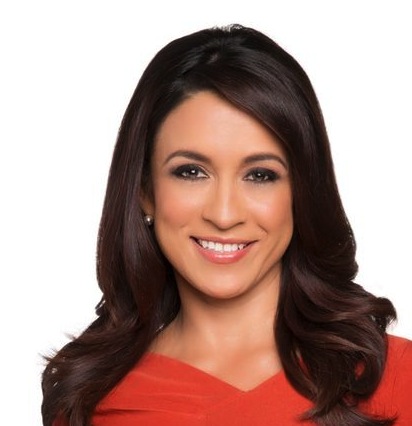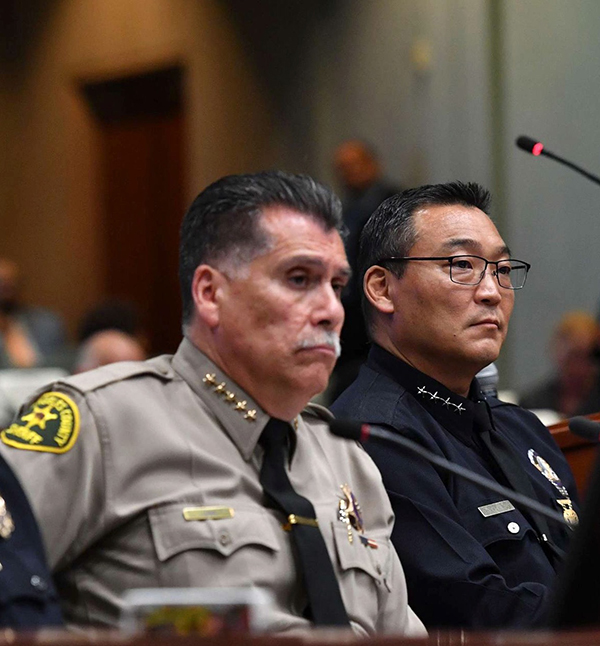
SACRAMENTO — California lawmakers and state agencies are intensifying efforts to combat the growing prevalence of hate crimes and bias incidents across the state. On June 25, a legislative hearing and two newly released government reports highlighted the persistent threats facing communities targeted by race, religion, gender identity and other forms of discrimination.
Assemblyman Corey Jackson, D-Moreno Valley, a member of the California Legislative Black Caucus, chaired a hearing of the Assembly Select Committee on Racism, Hate and Xenophobia, entitled “The State of Hate and Charting a Path Forward.” Held at the State Capitol, the hearing featured three panels focused on the impact of hate across California and strategies for moving forward.
“Over the last five years, California has experienced the highest rates of hate and discrimination in our state’s history,” Jackson said during the opening of the hearing.
The hearing’s panelists included Damon Brown, special assistant attorney general for the California Department of Justice, and Brian Levin, chairperson of the California Commission on the State of Hate. Both offered expert testimony about the drivers of hate and the importance of statewide collaboration.
Rick Callender, president of the California-Hawaii NAACP, presented testimony describing systemic racism as a pervasive issue that manifests across institutions.
“Police use force, handcuffs or firearms against Black youth at an alarmingly high rate — 45% for ages 12 to 14, compared to 19% for white youth,” Callender said, citing data from the Racial and Identity Profiling Advisory Board.
Callender urged lawmakers to examine oversight and reform within law enforcement systems, adding, “It’s clear these efforts are still gravely needed in our community. We need this kind of hate prevention dollars to be able to address these things in our communities.”
The Stop the Hate program, a statewide initiative co-administered by the California Civil Rights Department and the Department of Social Services, was cited by Callender as one solution that should continue to receive strong support and funding.
“This is what today is all about,” Jackson said. “Uplifting the voices of protected classes and proclaiming solidarity as we face a common enemy.”
The hearing coincided with the release of two significant reports: the Department of Justice’s “Hate Crimes in California 2024” and the Civil Rights Department’s “Hate Crimes Across California,” produced in partnership with the UCLA Center for Health Policy Research.
According to the Department of Justice report, hate crimes involving a religious bias increased by 3%, from 394 in 2023 to 406 in 2024. Notably, anti-Jewish bias events rose by 7.3%, from 289 to 310 incidents.
“There is absolutely no place for hate in California,” Attorney General Rob Bonta said in a statement June 25. “Transparent and accessible data is a critical part of understanding where we are and how we can end hate crimes in our communities.”
The Department of Justice data also showed a small overall decline in hate crimes motivated by race, with a 0.6% drop from 1,017 events in 2023 to 1,011 in 2024. However, anti-white bias incidents rose by 15.1%, and anti-Black and anti-Asian incidents both saw modest declines of 4.6% and 4.8%, respectively.
Meanwhile, the Civil Rights Department’s report estimated that 2.6 million Californians experienced at least one act of hate between 2022 and 2023. Approximately 525,000 individuals encountered hate that was potentially criminal — including physical assault or property damage — and another 5 million reported witnessing such acts.
“These estimates make it clear that people across our state continue to experience hate and discrimination well beyond what is reported to law enforcement,” said Civil Rights Department Director Kevin Kish. “It takes all of us working together to live up to our values of respect and compassion for every Californian.”
The data drawn from the California Health Interview Survey, the largest state health survey in the country, has provided new insight into the scope of hate incidents not captured in police reports.
“What we’ve learned in this report about hate acts — in terms of who gets targeted, why, and how often — can be an invaluable resource,” said Dr. Ninez Ponce, director of the UCLA Center for Health Policy Research.
Both reports confirmed that, when disaggregated by race and ethnicity, Black Californians experience hate incidents more frequently than any other group.
Community voices echoed these findings during the committee hearing.
“Our committee initially came together in 2022, in response to police harassment in our county, particularly with the African-American community,” said Marlene Thomas, executive director of the Imperial Valley Social Justice Committee, a nonprofit located near the California-Mexico border.
The state has continued to promote resources like CAvsHate.org, a non-emergency, multilingual hate reporting portal, and hotline — (833) 866-4283. These services allow Californians to report bias incidents and get support confidentially.
Bonta reinforced the need for collective action.
“I urge leaders up and down the state to review the data and resources available and recommit to standing united against hate,” he said.
Contributing Writers Antonio Ray Harvey and Edward Henderson wrote this story. Harvey and Henderson are reporters for California Black Media.





